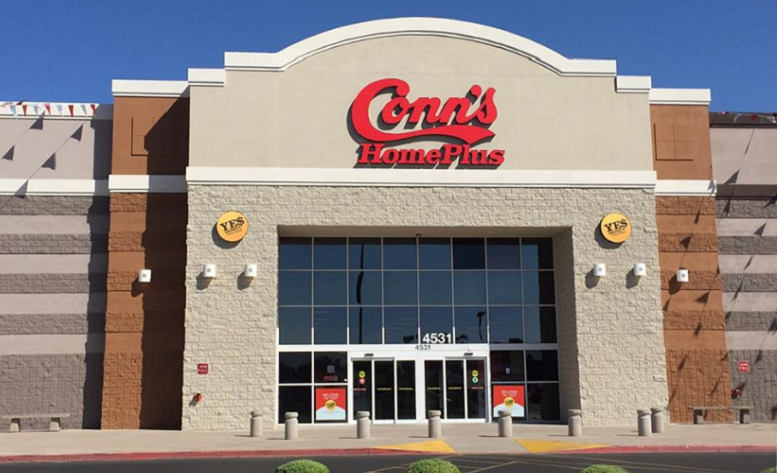Not a lot of other industries in the market have struggled as much as the retail industry so far this year. According to finance management company Credit Suisse (VTX:$CSGN), more than 8,000 stores in total have been closed this year by U.S. retailers. That’s more than the number of stores that closed during the financial crisis in 2008.
The reason for the fall of retail have been largely attributed to the rising popularity of e-commerce, as online retailers like Amazon (NASDAQ:$AMZN) offers lower prices and more convenience to consumers. This, along with bloated debts, have caused several retailers to downsize (hence the large number of store closings) or declare bankruptcy.
Below are some big-name companies have have closed the most stores so far this year in the retail industry.
RadioShack – 1,430 stores
For those that have been following the retailer closely, RadioShack has been in trouble for a while now. The company first declared bankruptcy in 2015 after years of unsaveable losses but much of its stores were saved from closing at the time thanks to a deal with American cellphone service provider Sprint (NYSE:$S). However, the deal was merely a bandaid on a bullet wound as RadioShack met its final fate and filed for bankruptcy protection in March 2017. On Memorial Day weekend, the company closed 1,000 of its stores in addition to the 430 stores it had closed earlier this year.
Now, all that’s left of RadioShack are 70 company-owned stores and 500 dealer-owned locations. Much of RadioShack’s failures can be blamed on poor management and share buybacks.
Payless ShoeSource – 800 stores
A month following RadioShack, Payless filed for bankruptcy protection in April 2017. At first, the footwear company only cited 400 store closures, but added an additional 400 later. However, the company is expecting to see more closures in the future as the 800 stores that were closed this year only make up about 20% of Payless’ 4,000 stores.
Like many retailers, Payless’ fall can be largely attributed to the rapidly decreasing of consumers that visit shopping centers due to increase in e-commerce traffic. As such, it does not look like Payless could make a comeback with its current state of affairs.
Rue21 – 400 stores
On May 2017, teen-centric clothing retailer rue21 filed for bankruptcy protection, joining similar clothing brands like American Apparel and Aeropostale. The retail company will be closing 400 out of its 1,179 stores to try and get back on track. As well, rue21 is trying to gain permission from the court to borrow $175 million for additional financing.
While the company has retained a positive outlook on the future of rue21 as it improves its cost structure, the rise of e-commerce could very well mean the end of this clothing retailer if it doesn’t improve its business plan as well.
Gymboree – 375-450 stores
Although e-commerce competition is largely the reason for many retailers’ fall, other factors such as poor management and the inability to adapt to change play a part as well. Such is the case of children’s-clothing retailer Gymboree. While its competitor Children’s Place have seen great success as one of the best-performing stocks for the past few years, Gymboree have filed for bankruptcy protection just a few weeks ago.
With the file for bankruptcy protection, Gymboree said that it will close around 375 to 450 stores out of its total of 1,281. The closures should help the children’s-clothing retailer to unload some of its debt of $1 billion, but the future of this company is just as rocky as the previous three retailers mentioned above.
Ascena Retail Group (NASDAQ:$ASNA) – 268-667 stores
Unlike the companies previously listed, Ascena Retail Group did not file for protection against bankruptcy. The company, has, however, also been greatly impacted by the failing retail industry. In June, the parent company of well-known brands like Ann Taylor, Lane Bryant, and Dress Barn announced in June that it will be closing 268 of its stores with the possibility that it may be shutting down about 667 stores in the next two years.
The closures are less likely to impact Ascena greatly, who has around 4,850 stores in total and is known as one of the largest clothing retailers in the United States. The company’s future looks a little less bleak compared to previous mentions, as its most recent earnings report showed a small profit. However, same-stores sales also went down by 8% — hence Ascena’s actions to close a handful of its stores.
Sears Holdings Corp. (NASDAQ:$SHLD) – 265 stores
Although Sears have not filed for bankruptcy protection like most retailers in this list, several investors believe that the company doesn’t have a long way to go before it does file for bankruptcy. Once known as the biggest retail company in the United States, Sears’ fall from its title is a reminder to many in the retail industry that no one is safe.
Sears’ struggles can be dated all the way back to 2010 — since that year, the company has yet to see an annual operating profit. Sales have also went down drastically since 2010. As such, its recently announced 20 additional store closures to add on to the 245 closures earlier this year. More closures are expected.
The Limited – 250 stores
One of the first retailers to announce mass store closures this year, The Limited declared bankruptcy shortly after it closed its 250 remaining stores.
When it announced the closures, the company stated that it will continue its business through their website, however The Limited’s e-commerce business as well as intellectual properties has now been auctioned off to Sycamore Partners (traded privately) for $26.8 million. The Sycamore Partners is currently planning to relaunch The Limited’s online business.
Featured Image: twitter







